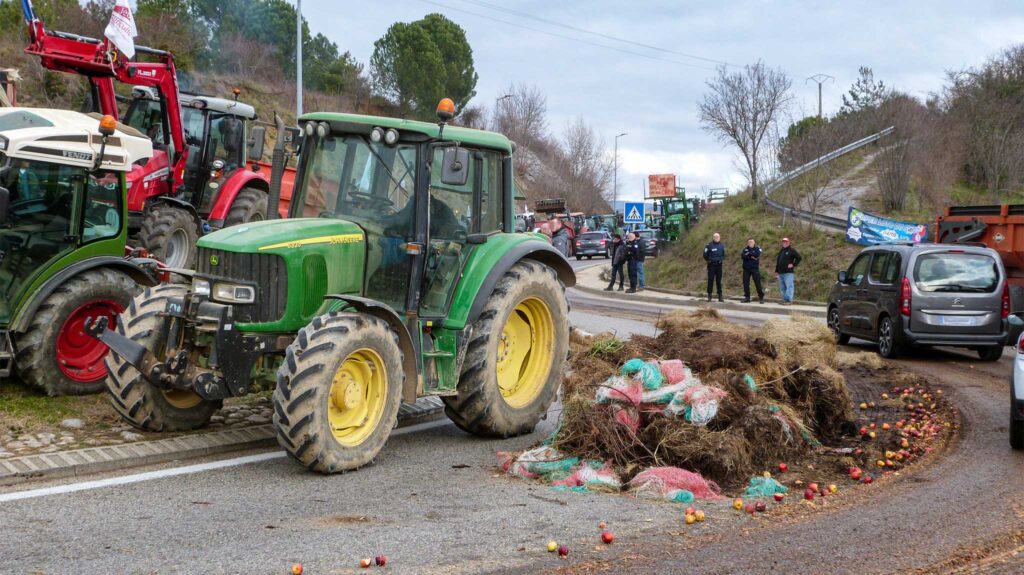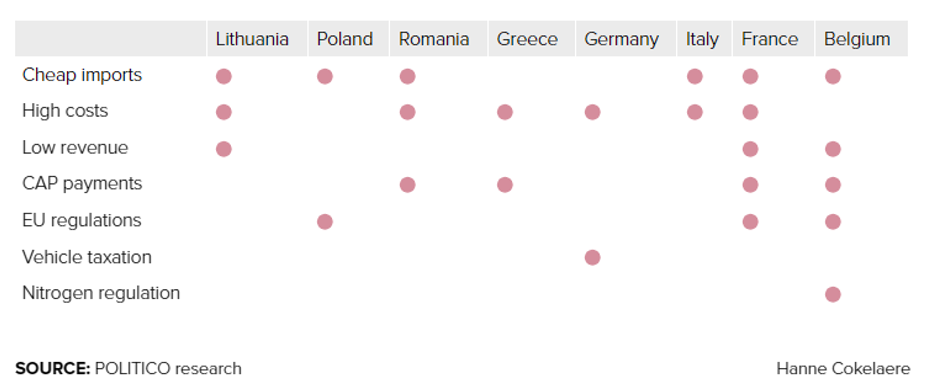In a scene reminiscent of the French Revolution, angry mobs descended upon the capital in tractors. Wait, tractors?! Farmers across the European Union (EU), upset by new environmental regulations, flexed their political muscles by demonstrating that limits exist to the “green” mandates passed by government bureaucrats in Brussels. Taking a page from climate protestors, farmers in France, Germany, Greece, Poland, and Portugal blocked key border cities, capital streets, and other key arteries. While proportionally small relative to GDP, this key industry is culturally significant, and the dramatic pictures put extreme pressure on elected officials to reverse course. It appears to be working. So, what caused this reaction in the first place?
Background: European Green Deal and Its Impact
The European Green Deal touts that it will make Europe the first carbon-neutral continent by 2050. Like many laws, the effect of these rules will disproportionally affect some more than others. In our “Rush to De-Carbonize” article, we stated that the rules would introduce inflationary and non-market forces that would create unintended consequences. Those predictions are coming true now. The law’s goals include reducing fertilizer, eliminating coal power, cutting subsidies for fossil fuels, and shifting to organic. The end result is higher costs for EU farmers.
The Role of the EU Common Agricultural Policy (CAP)
The EU Common Agricultural Policy (CAP), started in 1962, set standards for agriculture products in the EU, focusing on unifying the European market, prioritizing regional crops over foreign crops, and removing obstacles to movement within the bloc. This policy protected local farmers through tariffs and price supports to ensure a fair wage and less competition. It also ensured consistency of food quality and set rules for growing to level the local playing field. Increasingly, CAP drives environmental policy, including climate change goals, landscape preservation, and rural community support. Combined with Green Deal rules, these dictates may be popular in Brussels, but farmers see them as threatening their way of life.
Diverse Grievances and Common Concerns
Grievances differ by country, though, as shown in the chart below, although a common element exists throughout. When prices are affected by government policy instead of an open marketplace, distortions and unequal treatment will be present. Inflation from the pandemic combined with soaring grain prices at the outset of the Ukraine war helped farmers absorb the impact of higher fertilizer, labor, and energy costs. Politicians now feel pressure to reign in prices and are using farm policy to reduce support payments. This is occurring as the Green Deal is adding a myriad of new costs to their business. At the same time, duties and rules on cheap imports from Ukraine are being waived. This means that farmers without the same restrictions can undercut prices. Polish farmers continue to block grain at the Ukrainian border in protest.
Future Outlook: Conflict and Dissatisfaction
Predictably, when the government selects winners and losers, many will be upset. The rules and support payment structure created and expanded since the introduction of CAP benefitted farmers by protecting them from competition and supporting them through direct cash infusions. Naturally, this increased prices. Those who gave are now taking away to satisfy demand from other voters upset about high food costs. Doing this at the same time, the EU is trying to force their business to change for green goals, pushing them over their limit. For now, common sense is prevailing as officials relax more onerous diktats, but the conflict will continue. Climate goals and affordability do not work well together. Greenpeace and others thought the original goals were too modest. Expect to see fewer tractors and more environmental warriors in the streets. Nobody will be happy. Perhaps the new revolution will be against the EU.
Image by Kakoula10 via Wikimedia Commons under the Creative Commons Attribution-Share Alike 4.0 International license.


